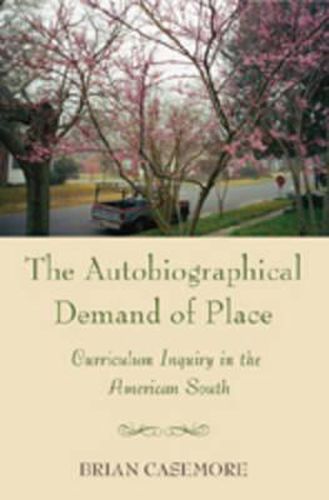Readings Newsletter
Become a Readings Member to make your shopping experience even easier.
Sign in or sign up for free!
You’re not far away from qualifying for FREE standard shipping within Australia
You’ve qualified for FREE standard shipping within Australia
The cart is loading…






Place is central to the study of the American South. The question of the meaning and power of place underpinned the earliest efforts to define and understand the region, and place remains a crucial concept in an ongoing process of regional identification and inquiry. This book examines Southern place autobiographically, historically, and theoretically in order to illuminate the subjective and social dimensions of place and to promote progressive conversation in the region. Using the interpretive tools of psychoanalysis to take account of the autobiographical roots of knowledge and society, Brian Casemore conceptualizes curriculum inquiry in the American South as a response to the complex role of place in self-formation. If we accept that place is ideological as well as physically dimensional - that it is created in the mind as well as the landscape - we have an opportunity to explore it as it emerges, laden with personal and public meaning.
$9.00 standard shipping within Australia
FREE standard shipping within Australia for orders over $100.00
Express & International shipping calculated at checkout
Stock availability can be subject to change without notice. We recommend calling the shop or contacting our online team to check availability of low stock items. Please see our Shopping Online page for more details.
Place is central to the study of the American South. The question of the meaning and power of place underpinned the earliest efforts to define and understand the region, and place remains a crucial concept in an ongoing process of regional identification and inquiry. This book examines Southern place autobiographically, historically, and theoretically in order to illuminate the subjective and social dimensions of place and to promote progressive conversation in the region. Using the interpretive tools of psychoanalysis to take account of the autobiographical roots of knowledge and society, Brian Casemore conceptualizes curriculum inquiry in the American South as a response to the complex role of place in self-formation. If we accept that place is ideological as well as physically dimensional - that it is created in the mind as well as the landscape - we have an opportunity to explore it as it emerges, laden with personal and public meaning.